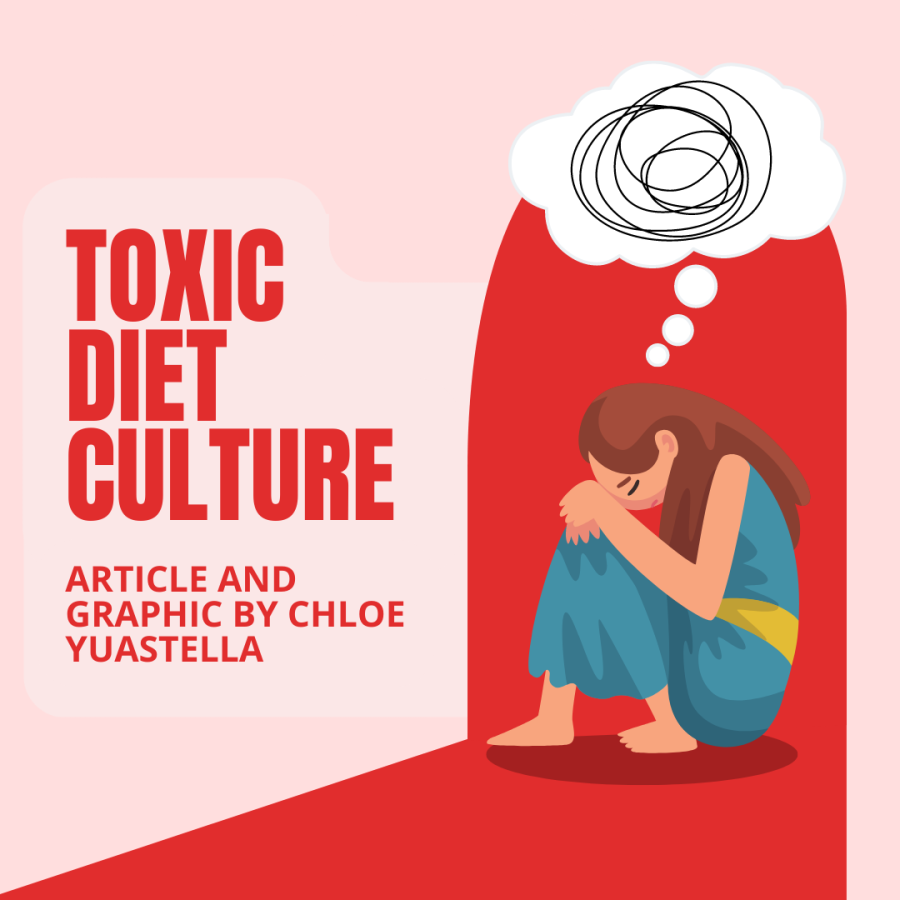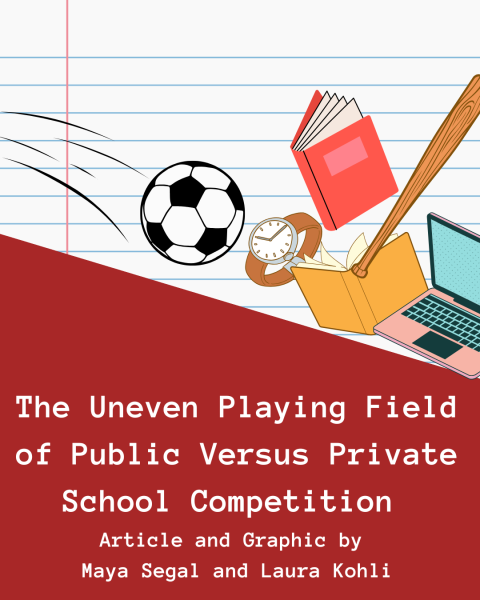Toxic Diet Culture
Content Warning: This article discusses disordered eating and body dysmorphia.
“I can’t finish this, it’s too many calories,” “You know that’s bad for you, right,” “I feel so fat right now.” These are all phrases that make their way into my day regardless of who I am around or what time of day it is. It is extremely tiring, especially out of the mouths of skinny, able-bodied people. Overhearing these conversations can be triggering for people that struggle with disordered eating and food insecurity.
Diet Culture and eating disorders are becoming increasingly relevant in teens in the midst of the pandemic. The number of adolescents admitted to the hospital for severe illness from eating disorders increased significantly during the first few months of COVID-19 isolation. A report from the CDC reveals that the number of teen girls who visited the ER due to disordered eating doubled from March to October 2020. Though this isolation started more than two years ago now, its effects on adolescents are still lingering. Lack of education plays a major role in the perpetuation of diet culture and anti-fatness that can be seen all over Enloe. Schools have to do more to expose the dishonesty of advertising and social media in the context of patriarchy and capitalism, not only in health class settings. Young people are sold products that feed into their insecurities like dietary supplements and other gimmicks that profit the manufacturers. Young girls are at the forefront but are not the only people that suffer due to the commodification of an unrealistic beauty standard.
In the health class that Enloe requires each student to take, students are forced to condense their food into a numerical value, tracking their calories and keeping food logs. Not only does counting calories not support “Healthful Living”, but it may also contribute to more stress, guilt, and confusion regarding students’ relationship with food. This is not only an issue within Enloe but regarding the curriculum in all Wake County health classes.
There is a lack of nuance and sensitivity in the teaching of eating disorders and mental illnesses in a classroom setting. The slide show that was used to teach my Healthful Living class about eating disorders was almost comically insensitive and harmful. Anorexia was portrayed with a picture of an emaciated model with her ribs poking out. This was followed by a bullet point of a symptom: “Think fat, look like skeleton.” This perpetuates the stereotype that only skinny people can be anorexic or have eating disorders. This stereotype is even common in the medical field, with instances of people’s eating disorders being overlooked because they are “overweight”.
These lessons do not consider transgender people, disabled people, poor people, or even people with dietary restrictions and how these things factor into disordered eating and other health issues. They don’t address how our bodies are affected by traumatic events, psychological issues, or how to cope with comments made on our bodies, body dysmorphia and orthorexia, and toxic diet culture. There is so much information that is being overlooked and ignored causing the spread of misinformation among impressionable adolescents. Many students are suffering from body dysmorphia and eating disorders, but aren’t even aware.
Everyone deserves to feel welcome, safe, and comfortable in school. As students, we need to crack down on weight-based discrimination and understand that continuing to be ignorant about a topic this detrimental is costing people their lives.
Contacting hotlines and reaching out anonymously is a big step towards recognizing the problem and finding a resolution. Here are a few additional resources to learn more about eating disorders or to reach out for help:
National Eating Disorder Helpline: 1-800-931-2237 or text “NEDA” to 741741
National Association of Anorexia Nervosa and Related Disorders: 1-630-577-1330
The National Alliance on Mental Illness: Call 1-800-950-6264 or text “NAMI” to 741-741

(She/her)
Chloe is excited to be back for her second year in the Eagle's Eye! She loves reading autobiographies, drinking iced lattes, and listening...












Ms. Glees • Jan 11, 2023 at 7:38 AM
Thanks for bringing up such an important topic! Unfortunately a lot of curriculum is designed in a way that doesn’t keep up to date with research, trends, culture, etc. This is a perfect example of how needs of students (and people!) are not being met by continuing to reuse outdated information that doesn’t take so, so many things into account.